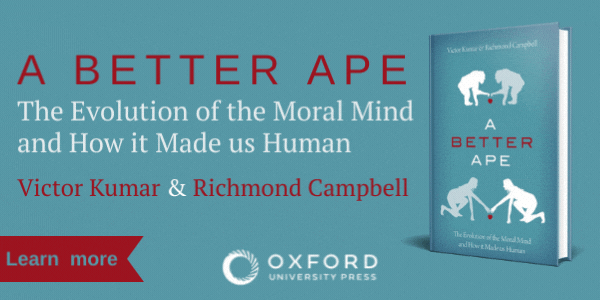British Journal for the History of Philosophy Announces Prize Winners
The British Journal for the History of Philosophy (BJHP) has announced the winners of three of its prizes.

Catarina Tarlazzi, Lindsey Stewart, and Jordan Lavender
The BJHP awarded the 2021 Rogers Prize—its annual prize for the best article it publishes—to Catarina Tarlazzi (Ca’ Foscari University) for her paper “The debate over universals in the time of Peter Abelard: what it is, and is not, about“. Here’s the abstract of her article:
From the nineteenth century onwards, the so-called ‘Debate over Universals’ from the time of Peter Abelard (c. 1100–50) is regarded as one of the major problems of medieval philosophy. This paper tries to advance the current approaches (which fall into two broad categories: a more analytical line of enquiry and a more historical one) by establishing a new understanding based on assumptions and questions. Through a comprehensive analysis of both published and unpublished logical commentaries from the first half of the twelfth century, it shows that—contrary to the received narrative—a lot is not discussed, but rather assumed. It therefore investigates what the debate is not about—arguing that this is just as relevant as what the debate is about.
The winner of the Rogers Prize receives £1,000. The prize was established in 2012 in honor of John Rogers, the founding editor of the journal.
The journal awarded its newly established Beaney Prize—its annual prize for the best contribution to widening the canon it publishes—to Lindsey Stewart (University of Memphis) for her paper “’Count it all joy’: black women’s interventions in the abolitionist tradition”. Here’s the abstract of her article:
In her introduction to Narrative of the Life of Frederick Douglass, Angela Davis notes that the abolitionist tradition often harboured a “gendered framework” that defined “black freedom” in terms of the “suppression of black womanhood”. As such, Davis charges us with the task of “develop[ing] a framework that foregrounds both the complexities of gendered violence under slavery and possible gendered strategies for freedom”. In this paper, I engage in this task in two ways. First, I analyse key gendered aspects of the abolitionist tradition that erase black women’s agency. One important implication of my argument is that the abolitionist tradition prioritizes physical resistance in how we define ‘black freedom’ and in narratives of black life. Second, I argue that black women have intervened in this tradition by broadening our sense of agency and extending the landscape of liberation. My primary example will be hoodoo practices that emphasize divine submission rather than resistance in the works of black women abolitionists, such as in Scenes of the Life of Harriet Tubman and The Memoir of Old Elizabeth, a Coloured Woman.
The winner of the Beaney Prize receives £1,000. The prize was established in 2021 in honour of Mike Beaney, Editor of the journal from 2011 to 2021.
The journal also awarded its Best Graduate Essay Prize for 2022 to Jordan Lavender for his paper “The Mark of the Mental in the Fourteenth Century: Volitio, Cognitio, and Adam Wodeham’s Experience Argumen”. The prize of £1000 is awarded annually to the writer of an essay that makes a significant contribution to the history of philosophy. The competition is open to all graduate students, anywhere in the world, studying any subject.
(via Alix Cohen)



Bravo!
Dr. Stuart, Claremont Grad Univ.